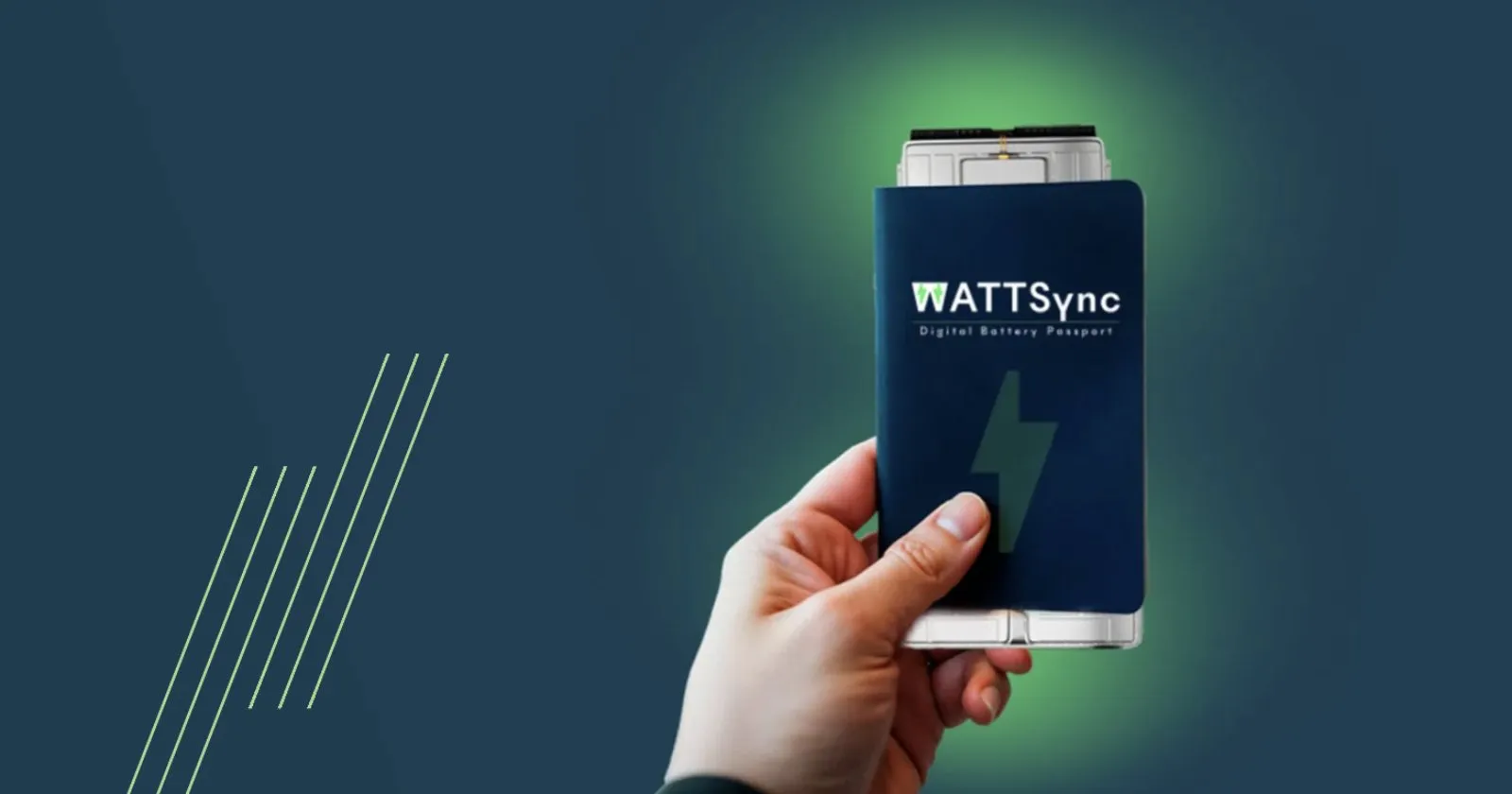
From component sourcing to design, usage tracking and eventual recycling, a "battery passport" will hold secure and traceable data.

Share Post

From component sourcing to design, usage tracking and eventual recycling, a "battery passport" will hold secure and traceable data.
Tata Technologies has announced that its WATTSync digital battery passport system is now available to battery manufacturers and the automotive industry at large, ahead of a potential regulatory requirement in India. Integrating with various manufacturing systems and resource tracking tools, WATTSync uses AI, blockchain technology, QR codes and NFC to create what the company calls a “secure digital backbone” with real-time visibility and insights.
Secure digital records known as “battery passports” will soon be required by law in some parts of the world for EV batteries, allowing manufacturers and consumers to track their entire lifecycle. The initiative is intended to create transparent, reliable records about everything from mineral sourcing to health parameters to recycling and material recovery. The aim is to prevent counterfeits and tampering, and promote sustainability, while gathering insights that could help with future product development and also identify issues that could lead to safety lapses.
Everything from mineral mining and transportation will be traceable, allowing for greater compliance enforcement to promote ethical sourcing, cost management, and import/export controls. Different stakeholders will have access to only the information they need. Tata Technologies claims the data is tamper-proof and auditable, with safeguards in place to protect sensitive or proprietary information.
Also Read: India Aims to Become Global Leader in EV Manufacturing by 2030, Says Nitin Gadkari
During its life, battery health and usage statistics can be added to the information contained within the passport, creating actionable intelligence that can help track design, safety or lifecycle anomalies. Batteries that are repurposed for second-life applications also continue to be tracked, while recycling operations can reduce risk and improve yields and efficiency.
The offering is similar to Tata Elxsi’s Battery Aadhaar proposal. The government of India is currently formulating its battery passport policies, through NITI Aayog which is holding discussions with multiple government departments and stakeholders. A preliminary framework is expected to be announced within a few months.
Compliance regulations in the EU will come into effect in February 2027, for all EV and industrial batteries with 2kWh or greater capacity ratings. Indian manufacturers that export EVs for sale in European markets will have to meet these requirements.
Non-PLI Electric Two-Wheeler OEMs See Growth Plunge from 407% to –33%: Report
Acko Drive Team 27 Feb, 2026, 11:48 AM IST
51 Teams Compete as mBAJA SAEINDIA 2026 Opens in Narsapur
Acko Drive Team 27 Feb, 2026, 10:05 AM IST
Maharashtra Tops India PV Sales in Q3 FY2026 With 12.4% Share, Western Zone Leads All Regions: SIAM
Acko Drive Team 27 Feb, 2026, 9:39 AM IST
Raptee.HV Begins Large-Scale Deliveries of T30 Electric Motorcycle in India
Acko Drive Team 27 Feb, 2026, 8:14 AM IST
New Bajaj 125-250 cc Motorcycle Brand Launching Soon
Acko Drive Team 27 Feb, 2026, 7:56 AM IST
Looking for a new car?
We promise the best car deals and earliest delivery!
